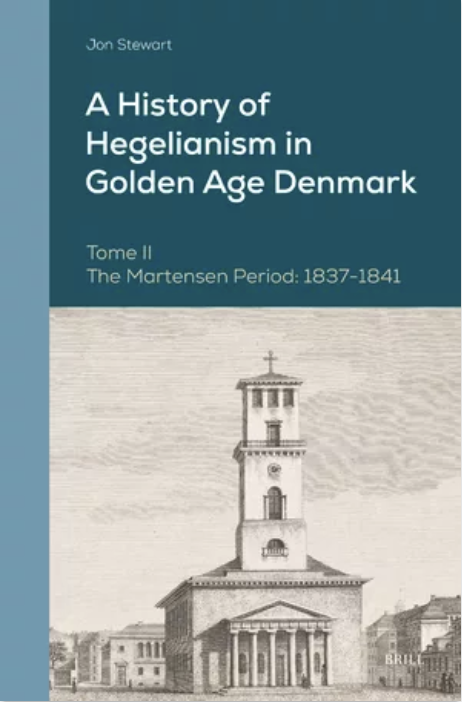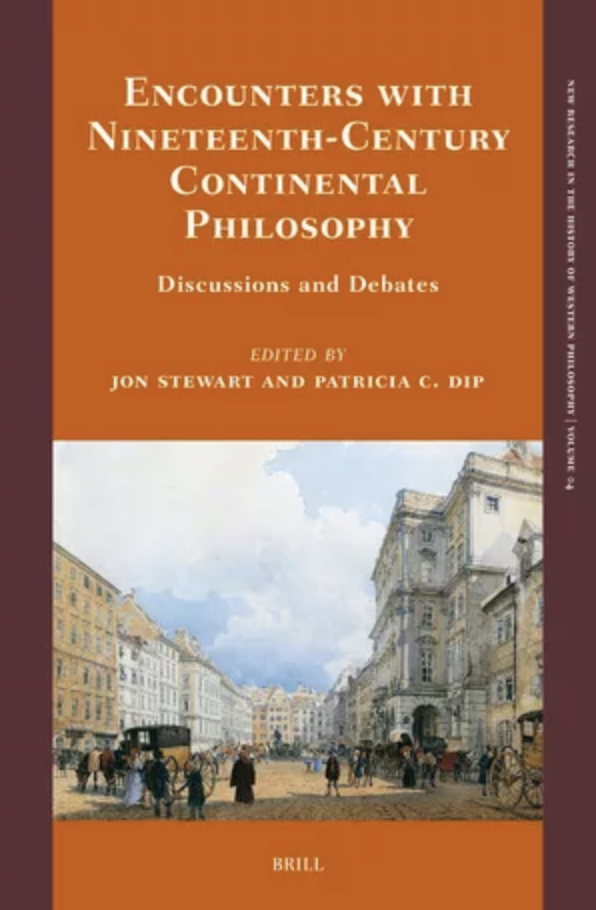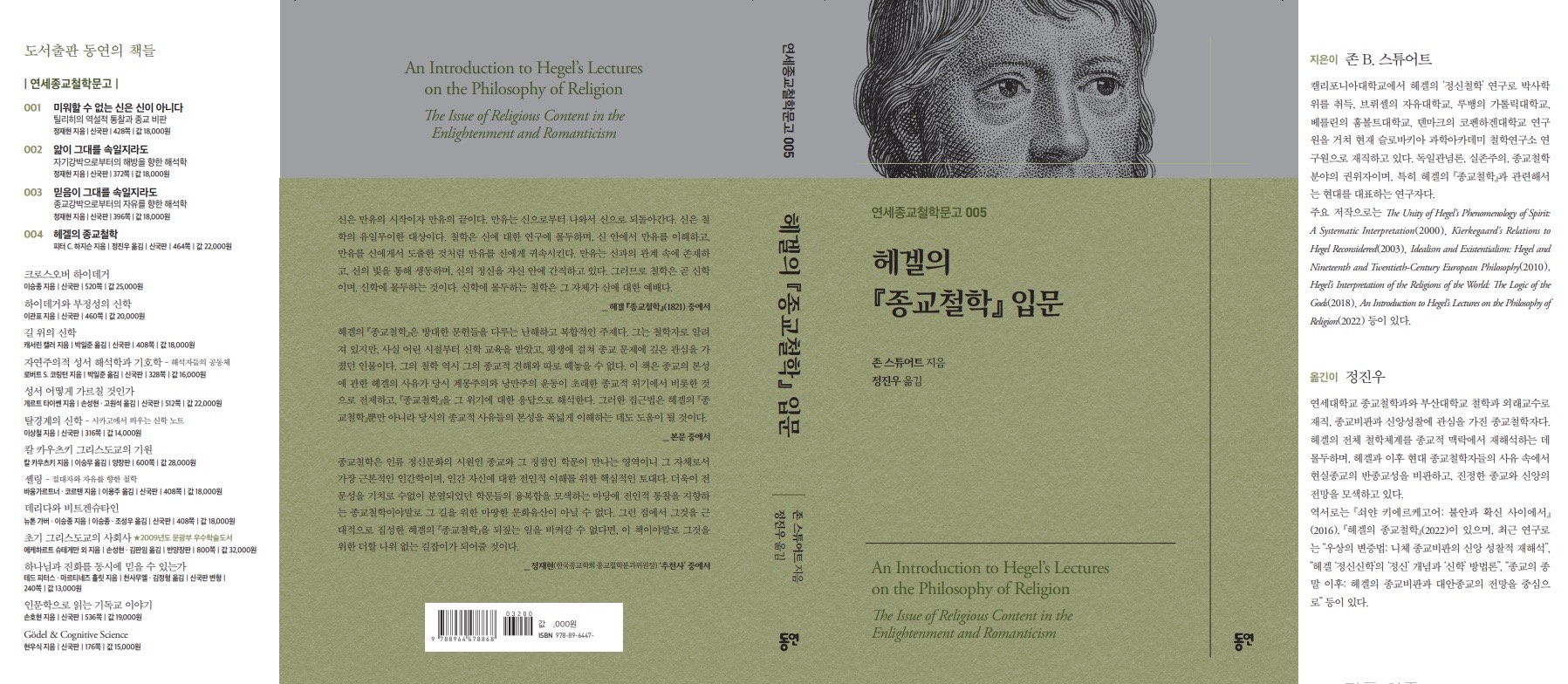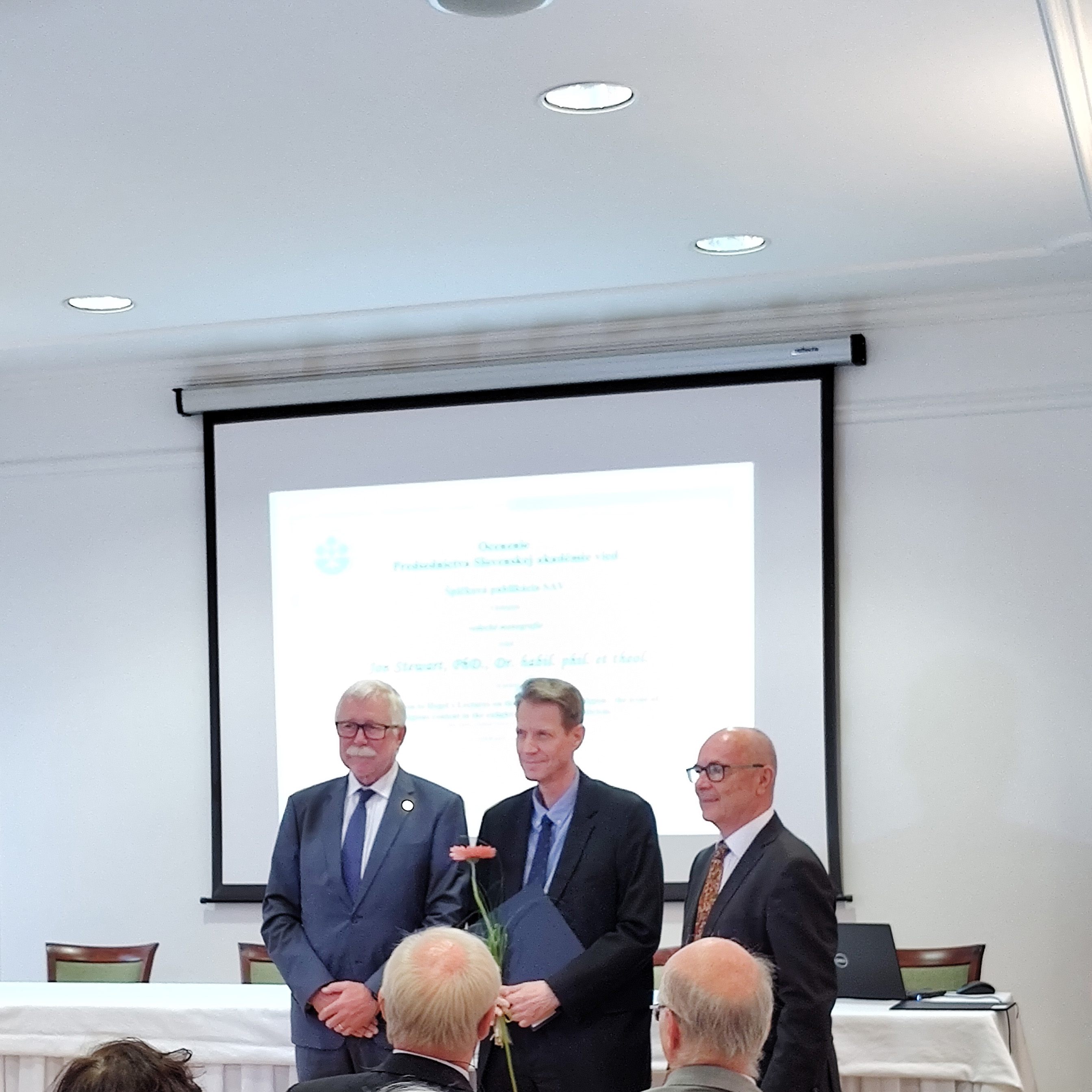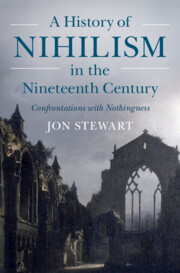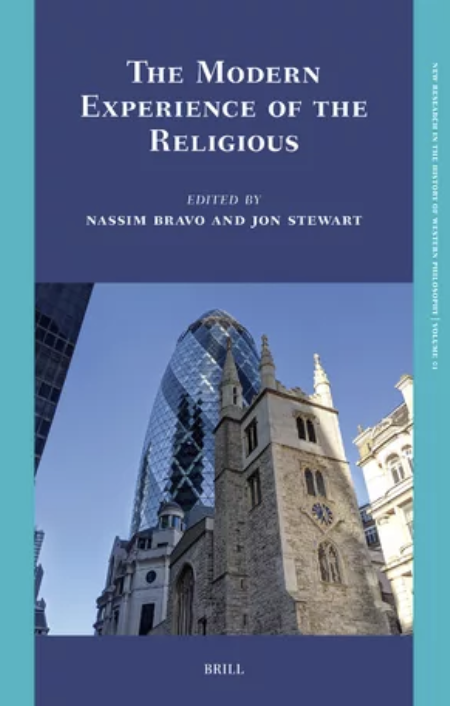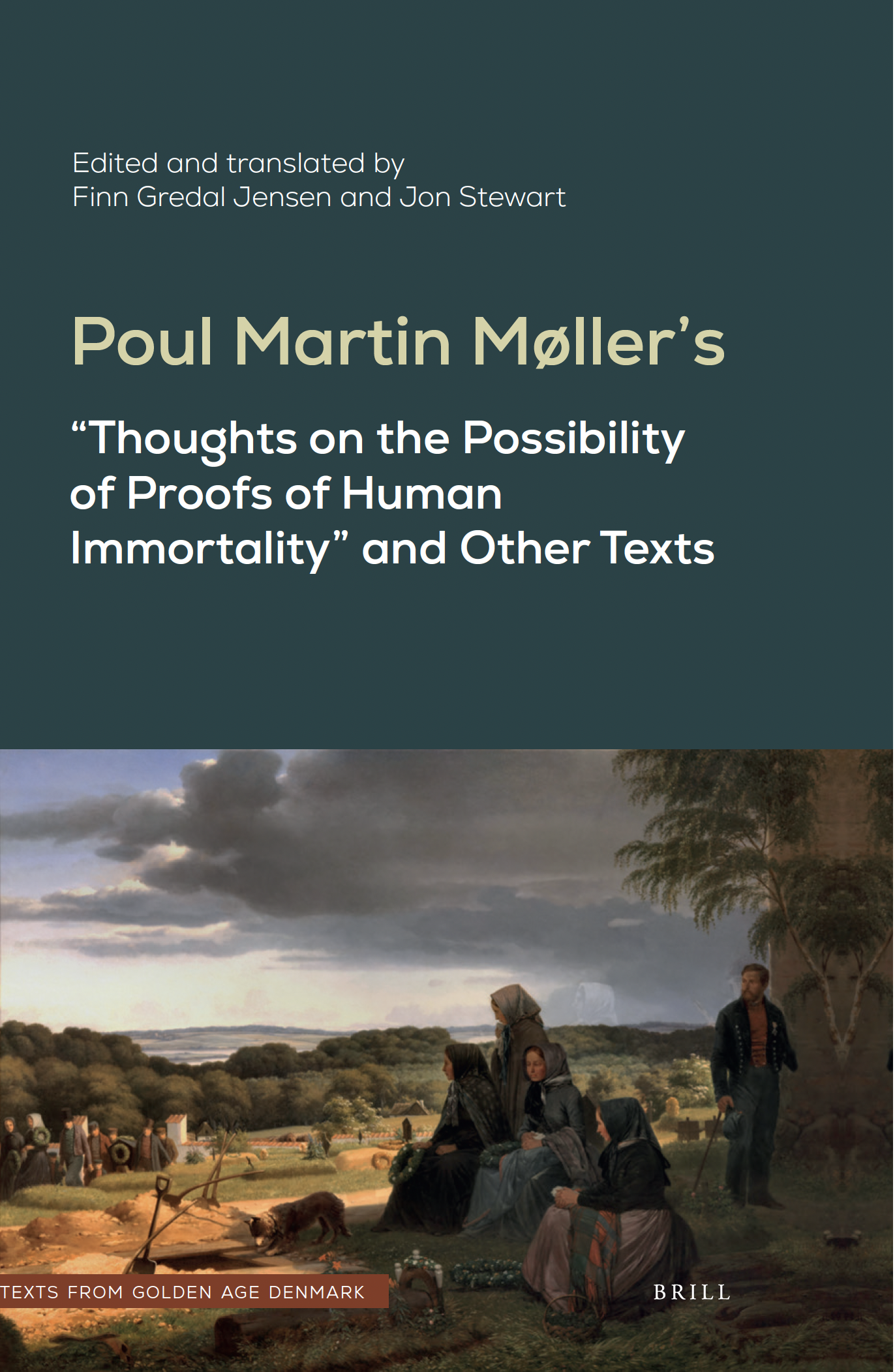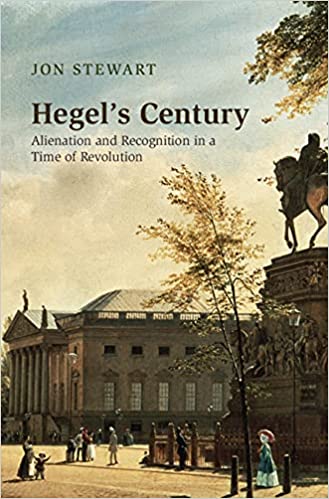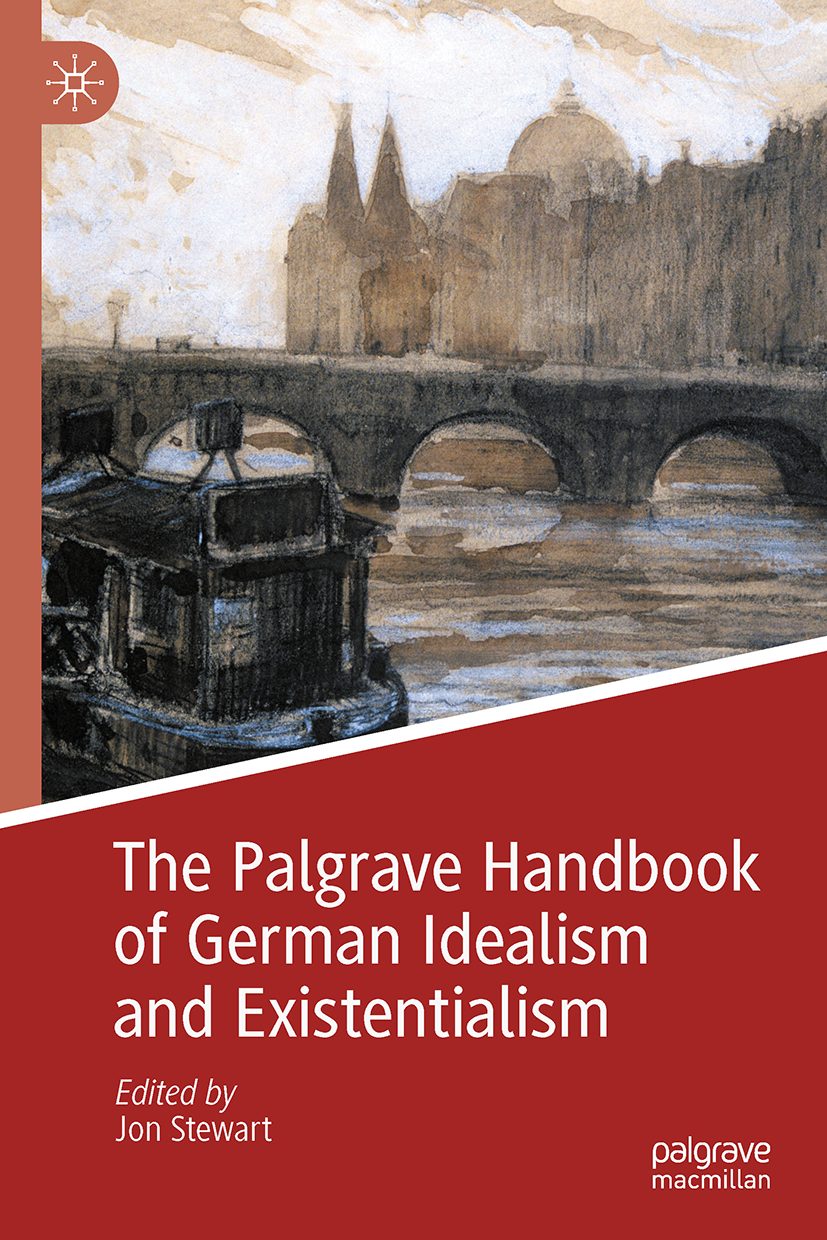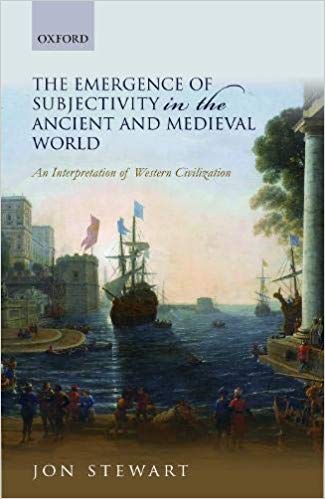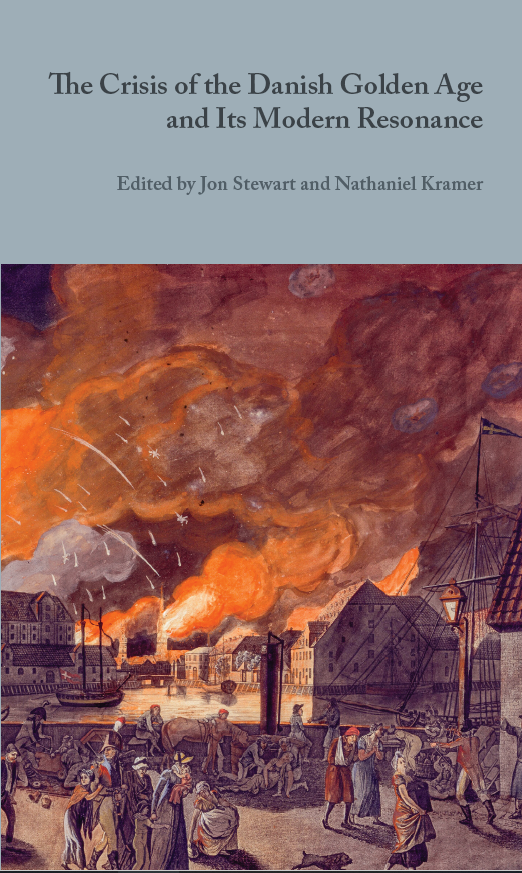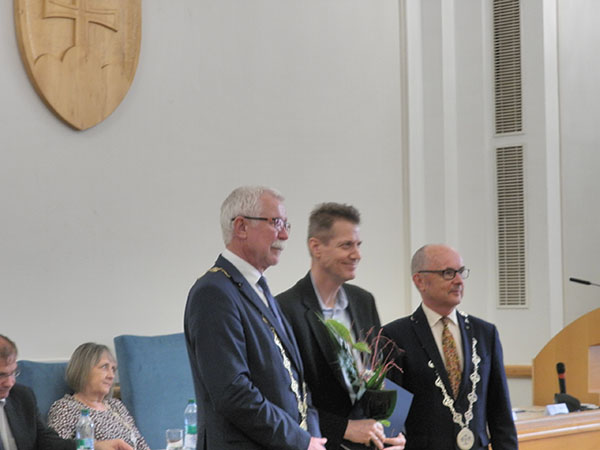|
Jon Stewart Ph.d., Dr.
habil. theol. & phil.
Institute of Philosophy Slovak Academy of Sciences |
|||||||
| Home
|
Curriculum Vitae | Publications | Current Projects | Papers Given |
Web
Links
and Archive |
||
 |
|||||||
|
News
Just Published: A History of Hegelianism in Golden Age Denmark 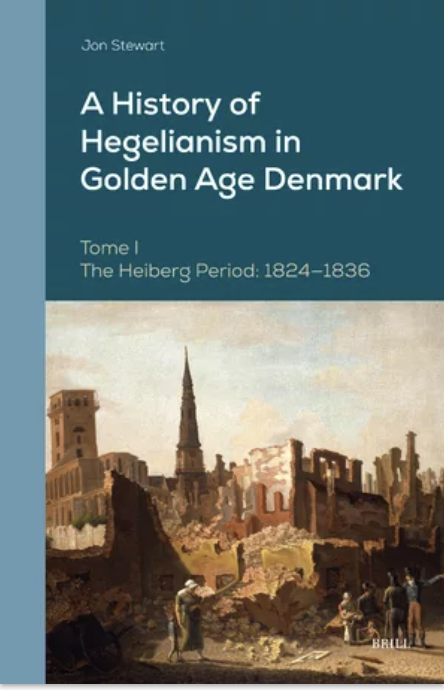 Vol. 1: The Heiberg Period: 1824-1836 2nd Revised and Augmented Edition This
is the first of a three-volume work dedicated to exploring the influence of
G.W.F. Hegel’s philosophical thinking in Golden Age Denmark. The work
demonstrates that the largely overlooked tradition of Danish Hegelianism played
a profound and indeed constitutive role in many spheres of the Golden Age
culture. ________________________
A History of Hegelianism in Golden Age Denmark
Vol. 2: The Martensen Period: 1837-1841 2nd Revised and Augmented Edition ________________________ Forthcoming Soon: A History of Hegelianism in Golden Age Denmark
Vol. 3: The Martensen Period: 1837-1841 Leiden: Brill This third tome covers the most exciting and dynamic time in the Danish Hegel reception from 1842 to 1855. This heterogeneous period saw the emergence of several new figures, many of whom were associated with the left-Hegelian school. This period is best known for the publication of the pseudonymous works of Søren Kierkegaard. The present tome places these famous works in the context of other contemporary Danish discussions about Hegel’s philosophy. It shows that many of Kierkegaard’s criticisms had been raised by other Danish thinkers before him and that a large part of his polemical campaign was aimed at the leading figures of the previous periods of the Danish Hegel reception, namely, Johan Ludvig Heiberg and Hans Lassen Martensen. ________________________
Annual
Book Prize of September 18,
2024 The book An Introduction to Hegel's Lectures on the Philosophy of Religion: The Issue of Religious Content in the Enlightenment and Romanticism (Oxford: Oxford University Press 2022) was awarded the annual book prize of the Slovak Academy of Sciences under the category "Top Scientific Publications-Scientific Monographs." Read more here.________________________
Podcast Interviews: Interviews on A History of Nihilism in the Nineteenth Century Hermitix (March 13, 2024): On Spotify On Youtube New Books Network (August 9, 2023): Listen to the Interview here ________________________
Recently Published: Encounters with Nineteenth-Century Continental Philosophy
With figures such as Fichte, Schelling, Hegel, Kierkegaard, Feuerbach, Marx, Engels, and Nietzsche, the nineteenth century was a dynamic time of philosophical development. The period made lasting contributions to several fields of philosophy. Moreover, it paved the way for the development of the social sciences at the turn of the twentieth century. This volume is dedicated to exploring the rich tradition of nineteenth-century Continental philosophy in its different areas with the main purpose of highlighting the importance of this tradition in the development of the leading streams of thought of the twentieth and twenty-first century.
________________________ Koren Translation of An
Introduction to Hegel’s Lectures on the Philosophy of Religion: Korean translation: 헤겔 <종교철학> 입문, trans. by Jeong Jin-Woo, Seoul: Dongyeon 2023.
________________________
Koren Translation of Søren Kierkegaard: Subjectivity, Irony and the Crisis of Modernity 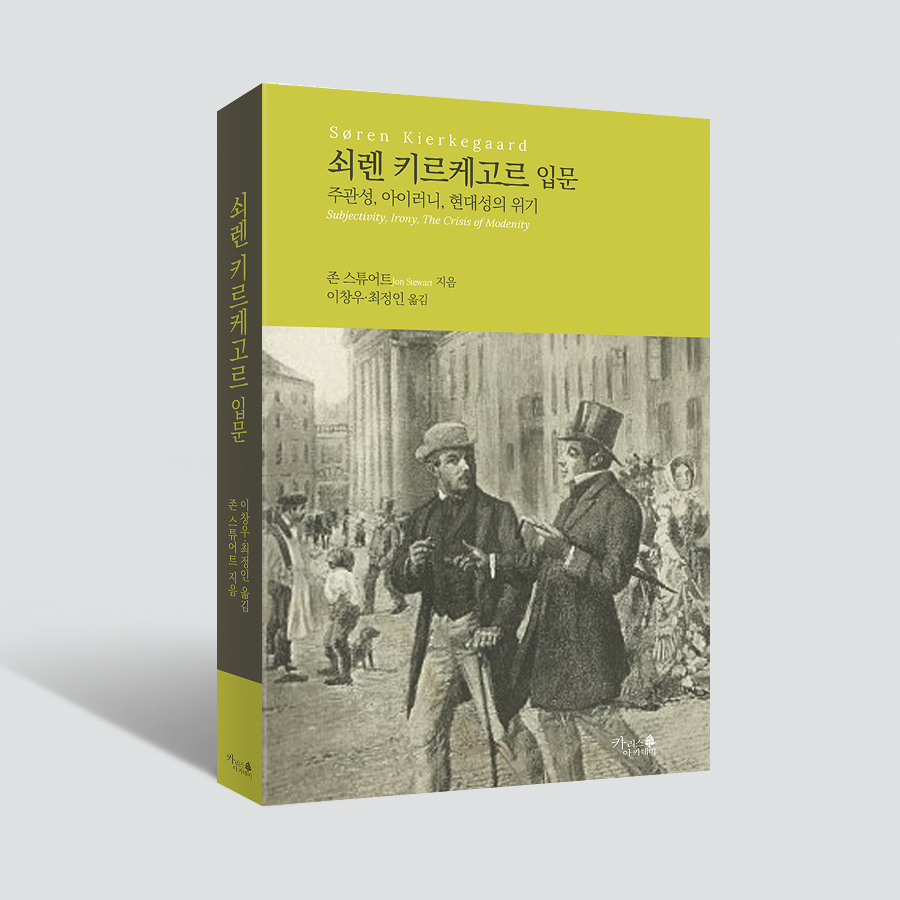 https://www.facebook.com/photo/?fbid=821164319794824&set=a.552807936630465 ________________________
Japanese translation of
________________________
Other News: Annual
Book Prize of September 18,
2023 The book An Introduction to Hegel's Lectures on the Philosophy of Religion: The Issue of Religious Content in the Enlightenment and Romanticism (Oxford: Oxford University Press 2022) was awarded the annual book prize of the Slovak Academy of Sciences under the category "Top Scientific Publications-Scientific Monographs." ________________________
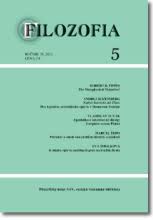 New Editor-in-Chief of the Journal Filozofia See “Editorial: A View to the Future,” vol. 78, no. 5, 2023, Filozofia, pp. 317-320. ________________________
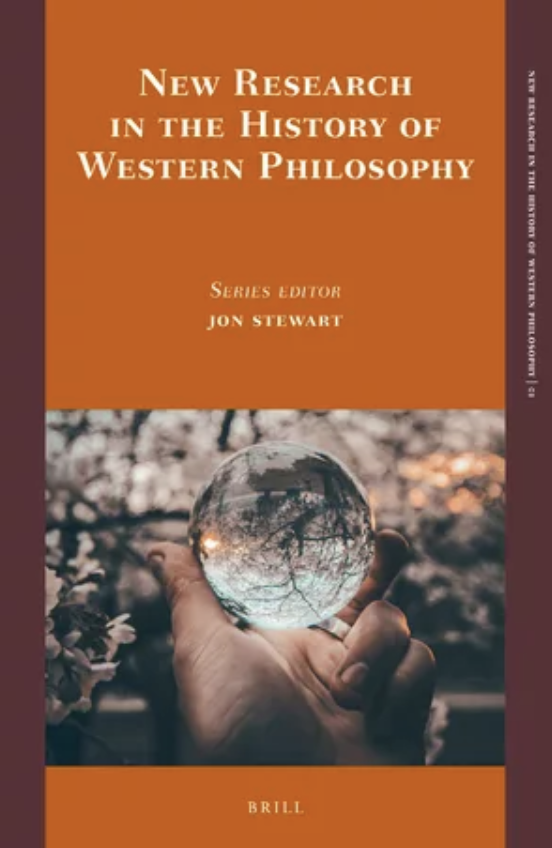 New Series: New Series:
New Research in the History of Western Philosophy (Brill) Today research in the history of Western philosophy is a global phenomenon. The series features the work of leading scholars from the different subfields, regardless of where they are found in the world. Philosophy is a discipline substantially enriched by a broad dialogue of perspectives that transcend the local contexts — the series New Research in the History of Western Philosophy provides a forum for this dialogue. The series also strives to showcase the modern importance and relevance of the history of Western philosophy to pressing issues of our day. It seeks single-author monographs and collected-author volumes that demonstrate that the texts, figures, and debates from the Western philosophical tradition are still very much alive not only in the academic field of philosophy but also in many other areas beyond its conventional boundaries. The series welcomes new approaches and studies on lesser-known figures and texts. Cambridge: Cambridge University Press 2023 The twentieth century is the period best known for thematizing the issue of nihilism with, for example, the works of the existentialists. For this reason, most philosophical or literary histories of this topic start with Nietzsche and move on from there. This study aims to show that the background for the tradition of twentieth-century nihilism was already well established in the nineteenth century. The thesis of the work is that the true origin of modern nihilism can be found in the rapid development of the sciences in the Enlightenment that established a new secular worldview that gradually displaced the old religious one. The modern scientific view presented a picture of human beings as increasingly small and insignificant in the vastness of space and time. This led to discussions about and literary portrayals of different issues related to nihilism in the first half of the nineteenth century, long before Turgenev and Nietzsche made the term fashionable. Drawing on the importance of Enlightenment science, this work tries to gain insight into the nature and development of nihilism in the nineteenth century. ________________________
The Modern Experience of the Religious Series: New Research in the History of Western Philosophy, volume 1 Volume Editors: Nassim Bravo and Jon Stewart The articles in The Modern Experience of the Religious,
edited by Nassim Bravo and Jon Stewart, explore the many ways in which religion
was impacted by the emergence of modernity, particularly after the
Enlightenment, which underscored the centrality of human reason and thus called
into question traditional forms of religiosity. Modernity raised several
questions that are studied by the authors of this volume: What should be the
role of religion in a secular or pluralistic society? How does the human being relate
to God? Can instituted religion be compatible with modern values such as civil
liberties, pluralism or environmentalism?
________________________
Poul
Martin Møller's "Thought on the Possibility of
Proofs of Human Immortality" and Other Texts
Translated and edited by
Finn Gredal Jensen
and Jon Stewart Leiden: Brill 2022
A classicist, philosopher, and poet, Poul Martin Møller was an important figure in the Danish Golden Age. After the early death of his wife in 1834, Møller was plunged into an extended period of depression. This traumatic event led him to think more profoundly about the question of the immortality of the soul. Møller had long been interested in Hegel’s philosophy, and this same issue was central to the then current debates in the Hegelian school. In 1837 he published his most important philosophical treatise, “Thoughts on the Possibility of Proofs of Human Immortality with Regard to the Latest Literature on the Subject.” This work gave an overview of the German debates about the issue and Møller’s own critical evaluation of them. It was read and commented upon by the leading figures of the Golden Age, such as Johan Ludvig Heiberg, Frederik Christian Sibbern, and Søren Kierkegaard. It proved to be the last important work that Møller wrote. He died in March of 1838 at the age of 43. ________________________
An
Introduction to Hegel’s Lectures on the Philosophy
of Religion:
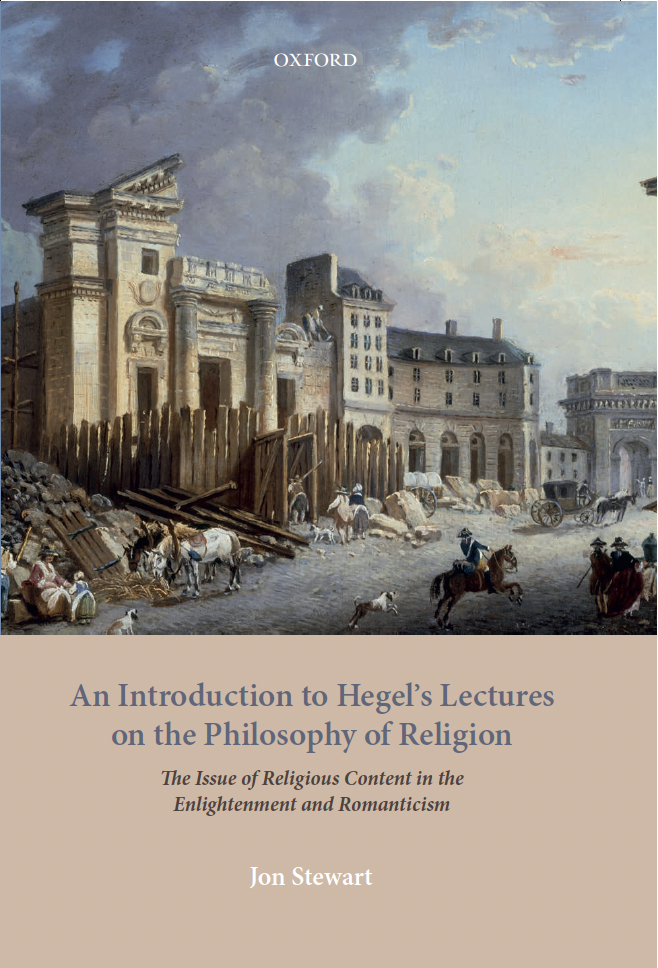 The Issue of Religious Content in the
Enlightenment and Romanticism This work attempts to give a basic introduction to Hegel’s religious thinking by seeing it against the backdrop of the main religious trends in his own day that he was responding to, specifically, the Enlightenment and Romanticism. The study provides an account of the criticism of religion by key Enlightenment thinkers such as Voltaire, Lessing, Hume, and Kant. This is followed by an analysis of how the Romantic thinkers, such as Rousseau, Jacobi and Schleiermacher, responded to these challenges. For Hegel, the views of these thinkers from both the Enlightenment and Romanticism tended to empty religion of its content. The goal that he sets for his own philosophy of religion is to restore this lost content. A detailed account is given of Hegel’s Lectures on the Philosophy of Religion with an eye to the issue of the content of religious faith. It is argued that the basic ideas of the Enlightenment and Romanticism are still present today and that this remains an important issue for both academics and non-academics, regardless of their religious orientation. ________________________
Hegel’s
Century: Alienation and Recognition in a Time of
Revolution
Cambridge:
Cambridge
University Press 2021 The book is the
category winner in philosophy
See the homepage of the Slovak Academy of Sciences See
the homepage of the Institute of Philosophy of
the Slovak Academy of Sciences
Slovak Academy of Sciences Prize for Scholarly work for 2021 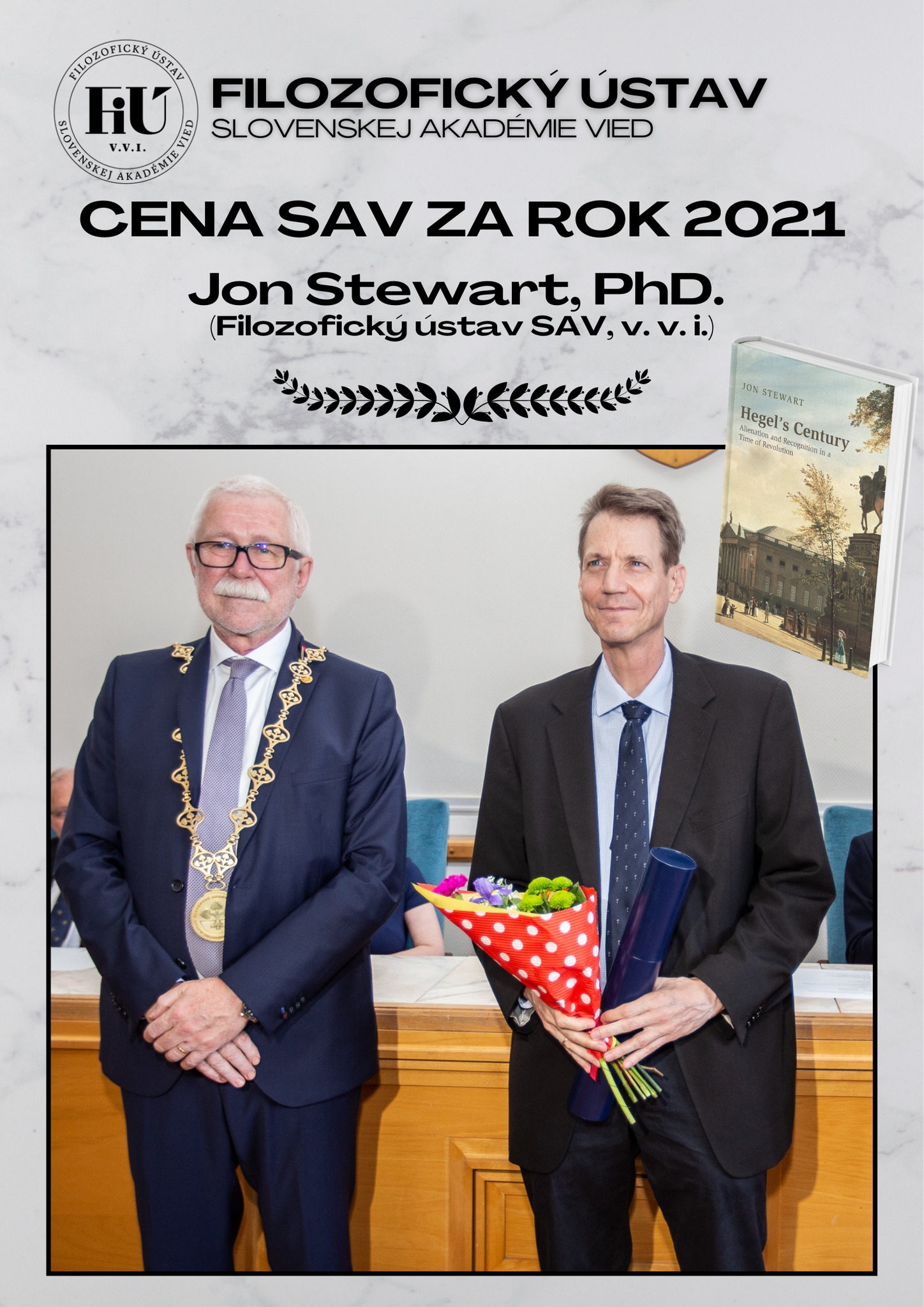
June 30, 2022
Many
students who attended Hegel’s lectures in Berlin in
the 1820s recalled with nostalgia in later life the
stimulating intellectual environment that radiated
from the ideas they heard in his lecture hall. This
atmosphere still existed a decade after his death, as
zealous students continued to flock to Berlin to study
with Hegel’s students in the 1840s. Over the coming
decades these students would come to constitute the
leading lights in Continental philosophy in the
nineteenth century: Feuerbach, Bauer, Kierkegaard,
Engels, Marx, Bakunin, and others. The present work is
an introduction to the history of this development. It
takes as its point of
departure
two concepts that originated
in Hegel’s
Reviews
"It
is often thought that Hegel's philosophy fell into a
rather deserved obsolescence by the middle of the
nineteenth century. But Hegel's Century
shows that even while Hegelianism waned, Hegel's
concerns with alienation and recognition continued to
set the agenda for European philosophy, both inside
and outside the universities. It offers a magisterial
yet accessible guide to those thinkers, mystics, and
revolutionaries who appropriated these Hegelian themes
for radically new purposes." Mark Alznauer - Northwestern University
“In
this wide-ranging and important study, Jon Stewart
provides a convincing account of Hegel’s influence on
the philosophy that came after him, focusing on the
themes of alienation and recognition. Following these
themes through a range of central thinkers, from Heine
through to Engels, he shows how the shadow cast by
Hegel was a long one – and that we are living with
these issues still. Stewart is an engaging, well
informed and perceptive guide to this central
tradition in the history of ideas, and will bring the
debates alive for a range of different audiences.”
“Among
other
things, this book is to be celebrated for its clarity
and breadth of exposition. In an age of increasing
academic specialization, Stewart shows great range in
tackling such a broad theme from such an
intellectually active century. This work spans the
fields of at least philosophy, theology, literature,
and political theory, and displays a commanding
knowledge of central texts from the period and the
socio-historical context in which they appear.” “Hegel’s
Century is a great book for advanced
undergraduates, graduate students, and even professors
who would like to get a better sense of Hegel’s impact
on the philosophical world, or would like to know a
bit more about the intellectual climate of the
nineteenth century. Its analyses are clear and
▪ “The Crisis of Modern Nihilism and its Source,” Fifteen Eighty Four, April 4, 2023 (online journal).
▪ “Notes to
a Marxist Phenomenology: The
Body and the Machine in Engels’ The Condition of the
Working Class in England,” ▪ “Kierkegaard
como hegeliano,” El Arco y la Lira: Tensiones y
Debates Filosóficos, no. 9, 2021, pp. 161-167.
▪ "Hegel’s Philosophy of Religion as a Phenomenology," in Filozofia, vol. 75, no. 5, 2020, pp. 386-400. ▪
"The
Crisis of the Danish Golden Age as the Problem of
Nihilism," in
The Crisis of the
Danish Golden Age and Its Modern Resonance,
edited by Jon Stewart and Nathaniel Kramer,
Copenhagen: Museum Tusculanum Press 2020 (Danish
Golden Age Studies, vol. 12), pp. 123-168.
Recent
Publications
The
Palgrave Handbook of German Idealism and Existentialism
Edited by Jon
Stewart Basingstoke
and New York: Palgrave Macmillan 2020
This Handbook explores the complex relations between two great schools of continental philosophy: German idealism and existentialism. While the existentialists are commonly thought to have rejected idealism as overly abstract and neglectful of the concrete experience of the individual, the chapters in this collection reveal that the German idealists in fact anticipated many key existentialist ideas. A radically new vision of the history of continental philosophy is thereby established, one that understands existentialism as a continuous development from German idealism. ________________________
Oxford:
Oxford University Press 2020
This
work presents a philosophical analysis of the development
of Western Civilization from antiquity to the Middle Ages.
It traces the various self-conceptions of the different
cultures from ancient Mesopotamia to Medieval Christendom.
The thesis is that as human civilization took its first
tenuous steps, it had a very limited conception of the
individual. Instead, the dominant principle was the wider
group: the family, clan or people. Only in the course of
history did the idea of individuality begin to emerge. The
conception of human beings as having an inner sphere of
subjectivity subsequently had a sweeping impact on all
aspects of culture and largely constitutes what is today
referred to as modernity. ________________________ The
Crisis of the Danish Golden Age and Its Modern Resonance Edited by Jon Stewart and Nathaniel
Kramer Copenhagen: Museum Tusculanum Press 2020 (Danish Golden Age Studies, vol. 12) The
historical circumstances of the Danish Golden Age are
well known: the Napoleonic Wars, the bombardment of
Copenhagen, the state bankruptcy in 1814 with the
ensuing financial crisis, the Revolution of 1848, and
the establishment of a parliamentary democracy in 1849.
There were peasant reforms, religious upheavals, and
changes in class and social structures. These events
constituted the milieu in which the Golden Age was born
and developed. The guiding idea of the present volume is
that these different crises served not just as a
backdrop or as obstacles but rather as catalysts for the
flowering of culture in the Golden Age. Despite their many debates and polemics among themselves, the leading figures of Golden Age Denmark were generally in agreement about the fact that their age was in a state of crisis. The dramatic events spilled over into the various cultural spheres and shaped them in different ways. The articles in this volume trace the different crises as they appear in literature, criticism, religion, philosophy, politics and the social sciences. The contributing authors draw compelling parallels between the perceived crisis of the Golden Age and the acute issues of our own day. The articles collected here thus together show the continuing relevance of the Golden Age for readers of the twenty-first century.
Seminar dedicated to
exploring the book
Hegel’s Century: Alienation and Recognition in
a Time of Revolution Cambridge: Cambridge University Press 2021. January 19, 2023 Bratislava International School of Liberal Arts Read more here“An
Analysis of the
Religion of the Maya: A Hegelian Approach based on
the Lectures on the Philosophy of Religion and
the Lectures on the Philosophy of Art” Critics have argued that the development of the world religions that Hegel sketches in the Lectures on the Philosophy of Religion is a crass expression of 19th-century Eurocentrism. This criticism aims to undermine Hegel’s claim about the necessity of this development. If one wanted to defend Hegel against this charge, it would be necessary to explore other religions that he failed to treat and to see to what extent, if at all, they can be said to fit into his scheme of the development of world religions. If his theory is really universal as he claims, then we would expect to find this same kind of development in other religions, besides the ones that Hegel himself was familiar with. In the present paper I wish to do this by means of an exploration of the religion of the Maya in pre-Columbian Mesoamerica. My thesis is that the polytheism of the Maya, in fact, fits very well into Hegel’s scheme. I argue specifically that it corresponds generally to the stage occupied by the Egyptian religion on Hegel’s account. Hegel’s Lectures on the Philosophy of Art also play a key role in this analysis since, I argue, similarities between the two cultures can perhaps best be seen by their artworks which depict their conceptions of their gods. International Congress: “Hegel’s
Aesthetics Today” University of Urbino "Carlo Bo" Palazzo Veterani, Aula 3 Urbino May 4, 2022 10:00 am (CET) ________________________
"Hegel’s Diagnosis of Modern
Alienation, and the Story of the Fall, and its
Echoes Bauer, Heine, and Bakunin" In his Lectures on the
Philosophy of Religion, Hegel gives a
provocative and heretical interpretation of the Fall
in Genesis. Surprisingly, his focus on key concepts
such as alienation and freedom proved to be highly
influential for the development of social-political
thinking in the 19th century. In this paper I trace
this development in the works of Hegel’s students
Heinrich Heine and Bruno Bauer, as well as Mikhail
Bakunin (who can be regarded as one of his students at
a second remove). All three of these thinkers make use
of Hegel’s interpretation of the Fall in order to
support their quite different agendas. Thus a largely
overlooked part of Hegel’s philosophy of religion is
transformed into a fruitful seed when it is
transplanted into the field of social-political
philosophy. May 19, 2022: 2:00-3:30 pm (CET) Research Seminar, Comenius University, Bratislava "Hegel as a Source of Inspiration for Heine, Feuerbach, and Marx April 6, 2022 Watch the video lecture https://www.youtube.com/watch?v=M_jP_Enod7U _______________________
"The Development of the Individual in Society" The Carlos Llano Lectures Departamento
de
Humanidades, Universidad Panamericana, Aguascalientes,
Mexico The
first lecture will be held online: on Thursday,
October 14, 2021 from 17:00-20:00 CET The
second lecture will be held online: on Friday, October
15, 2021 from 17:00-20:00 CET To
register, you just need to click here and give your name
and e-mail: https://forms.gle/LSA7LGsahHkCjG5E7
The
main line of argument traces the various self-conceptions
of different cultures as they developed historically,
reflecting different views of what it is to be human. The
thesis is that through examination of these changes we can
discern the gradual emergence of what we today call
inwardness, subjectivity, and individual freedom. As human
civilization took its first tenuous steps, it had a very
limited conception of the individual. Instead, the
dominant principle was that of the wider group: the
family, clan, or people. Only in the course of history did
the idea of what we now know as individuality begin to
emerge, and it took millennia for this idea to be fully
recognized and developed. The conception of human beings
as having a sphere of inwardness and subjectivity
subsequently had a sweeping impact on all aspects of
culture, including philosophy, religion, law, and art:
indeed, this notion largely constitutes what is today
referred to as modernity. Lecture 1, October 14 Introduction Part
1:
Analysis of Sophocles’ Oedipus the King Part
2:
Analysis of Socrates in Plato’s Apology Conclusions:
The
New Role of Subjectivity Lecture 2, October 15 Introduction Part
1:
Analysis of Seneca’s Letters Part
2:
Analysis of the Gospel of Matthew _______________________
Annual Book Prize of the Slovak Academy of Sciences 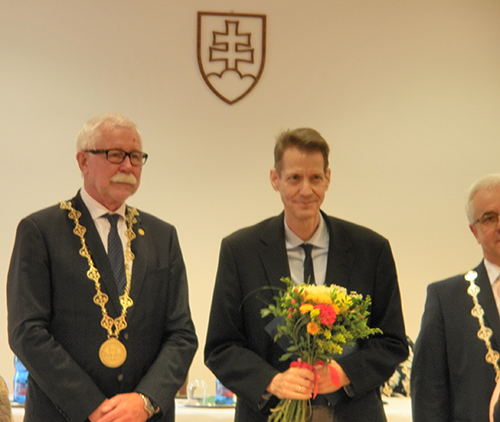
June
28, 2021 _______________________
"Teaching
Philosophy in Different Countries:
Reflections on Authority or the Lack thereof Department
of Philosophy, Faculty of Arts, Matej Bel University
Platform:
MS Teams. We kindly ask everybody who is interested to
participate to register
Abstract:
Teaching is a social event, and the classroom is a part of a wider society. What takes place in the teaching context is thus invariably a reflection of the wider society. In this paper I wish to make some reflections based on several years of teaching philosophy in many different countries. I will explore how the social context of a given country influences the nature of the pedagogical approach and techniques used. My claim is that basic social structures concerning authority find their way into the classroom in ways that are not always conducive to the learning process. Read more _______________________
Annual Book Prize of the Slovak Academy of Sciences 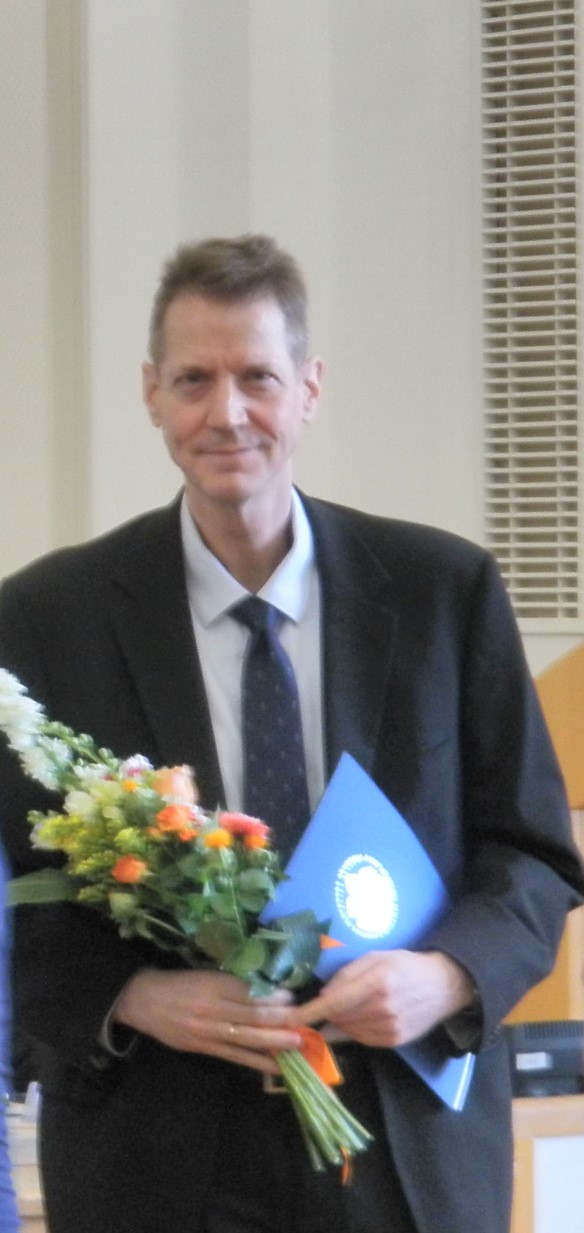 June 23, 2020
_______________________ Honorary
title of Private Professor Awarded from May
25, 2020
_______________________
Annual
Book Prize of July 2,
2019 The book Hegel’s Interpretation of the Religions of the World: The Logic of the Gods (Oxford: Oxford University Press 2018) was awarded the annual book prize of the Slovak Academy of Sciences under the category "Scientific Monographs in a Recognized Publishing House."
|
|||||||
| Jon
Stewart©2007-2024
|
|||||||
